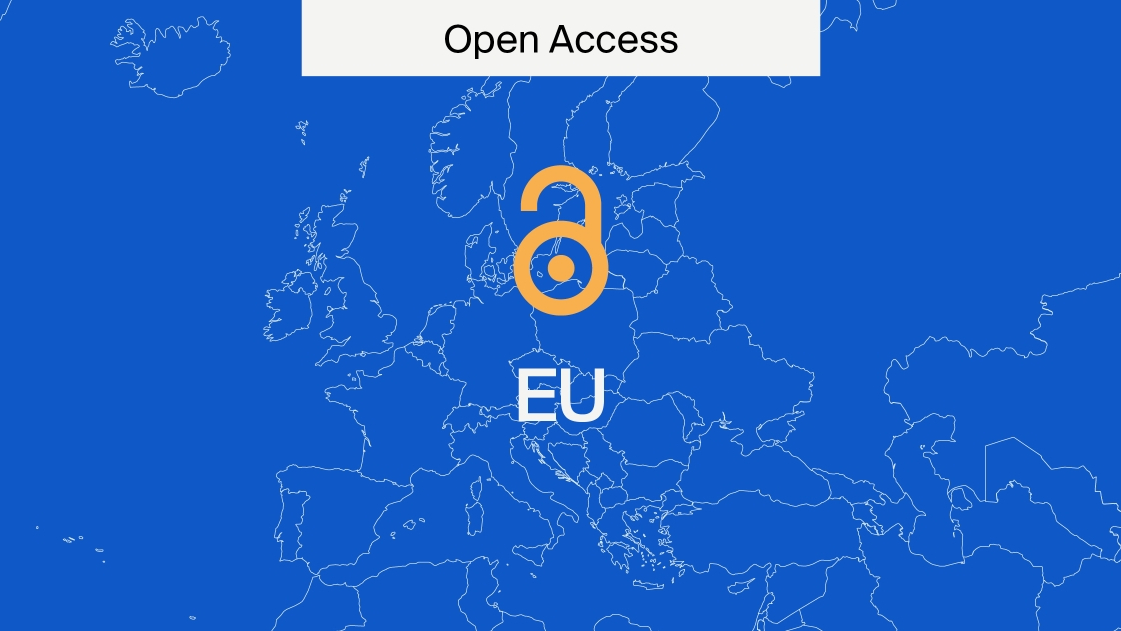
Open Access in Spain
In 2023, the Spanish government introduced legislation requiring all publicly funded research to be made Open Access as soon as it’s published. This mirrors the EU’s Plan S initiative, which aims to accelerate the transition to Open Access.
“Open science” is used interchangeably with “Open Access”. Here, we outline the history of the Spanish government’s mandates and its current policies for those looking to submit their research or to read it.
Open Access is the new paradigm
Open Access refers to a publishing model for scholarly research that makes information immediately available to readers at no cost. This research is also often free to reuse for scholarly purposes.
The benefits of publishing Open Access include more citations and a greater impact, reaching a wider audience, advancing scientific innovation, retaining copyrights, and increasing the potential for collaboration and recognition. Open Access can also help institutions like universities and research agencies in low- and middle-income countries by removing any price barriers to accessing academic research.
History of Open Access in Spain
Spain has gradually increased the requirements for Open Access publishing. Here is a brief history of Open Access in Spain:
- 1995: The journal Revista Electronica de Investigacion y Evaluacion Educative (RELIEVE) released its inaugural issue. This was the first peer-reviewed, Open Access scholarly electronic journal published in Spain. It focused on research, assessment, and evaluation in education.
- 2011: This was a key year for Open Access in Spain.
- A Royal Decree required the publication of PhD theses in an institutional repository.
- The Ciencia, la Tecnologia y la Innovacion (Science, Technology, and Innovation) act required research financed by funds from the state budget be published in institutional Open Access repositories as soon as possible but no later than twelve months after the official date of publication.
- 2018: A group of national research funding organisations, with the support of the European Commission and the European Research Council launched cOAlition S, an initiative to establish full and immediate Open Access to research publications. This is centred around Plan S, the principles behind the initiative.
Repositories have been an important part of Spain’s Open Access policy, with most universities maintaining institutional repositories. These are collectively searchable via the platform Recolecta, which is a platform that groups together all national scientific repositories. This helps to disseminate and ensure Open Access to scientific research produced in Spain.
As of 2023, the Journal Information System Committee includes 182 repositories in Spain.
Plan S
As part of the EU, Spain is part of the international initiative cOAlition S, which is built around Plan S.
Plan S mandates “full and immediate Open Access to peer-reviewed scholarly publications from research funded by public and private grants”. This is supported by ten principles that address copyright, transparency, and criteria, among other things.
Additionally, cOAlition S provides guidance for the implementation of Open Access, news about the movement, and two services for scholars. These are the Journal Comparison Service and the Journal Checker Tool.
If you’d like to learn more about Plan S and the EU’s other Open Access initiatives, see our article Open Access in the EU.
Current Open Access laws in Spain
The current Spanish policy supports the aims of Plan S of moving towards a research model based on Open Access results and data.
The art. 37 (Law 14/2011 on Science, Technology and Innovation), updated in 2022, promotes the development of open infrastructures and platforms, requires the open deposit of publications, data, codes and methods in repositories, and it requires Open Access to the results of research financed with funds from the General State Budgets. The deposit of publicly funded research in repositories must be simultaneous with publication, and will consist of a copy of the final version accepted for publication. Likewise, the Law incorporates the FAIR (Findable, Accessible, Interoperable, Reusable) principles in the management of research data.
The Organic Law of the University System of 2023 art. 12 establishes the obligations of universities in promoting open science, strengthening the mandate of the Science Law (mentioned above).
National open science strategy
In 2023, the Spanish government approved the first national open science strategy. This four-year plan involves a €23.8 million annual budget to make all publicly funded research free to access as soon as it is published. The government hopes it will strengthen the quality and transparency of research in Spain, and help promote movement towards a digital, low-carbon economy.
The strategy involves four key objectives:
- Establish interoperable digital infrastructures. This means creating systems that can exchange information and support a general ecosystem of Open Access science.
- Ensure proper management of the research data that are generated, in accordance with the FAIR principles (Findable, Accessible, Interoperable, Reusable).
- Implement open and free access by default to scientific publications and results financed directly or indirectly with public funds for all citizens.
- Establish new research evaluation mechanisms and a system of incentives aimed at promoting open science principles.
In short, the act aims to make Open Access the default for scientific publishing and to use its budget to support the transition and ensure it is sustainable.
Spain’s Open Access statistics
Spain has already seen a steady decline in articles published as subscription-only and increase in those published as Open Access. Here are some statistics from Scopus:
- 2011: 70% of articles were subscription-only, 14% were green Open Access, and 8% were gold Open Access.
- 2016: 56% of articles were subscription-only, 14% were green Open Access, and 19% were gold Open Access.
- 2021: 33% of articles were subscription-only, 11% were green Open Access, and 50% were gold Open Access.
As you can see, subscription-only articles decreased by a staggering 62% over the 10-year period, while gold Open Access conversely increased by 42%. Meanwhile, green Open Access slightly decreased. This may reflect authors choosing to publish in gold Open Access journals, rather than sticking to subscription-based journals and having to also submit to a repository.
Future trends
Spain has the tenth biggest output of articles worldwide. Its commitment to Open Access will serve as a model for other countries seeking to transition.
The ‘four-year’ in the four-year plan refers to the budget commitment. This means we could see an increase or maintenance of it depending on the success of the initiative.
Given that Spain is a supporter of Plan S, it’s unlikely that its commitment to transitioning to majority Open Access publishing will change. Especially given that this policy is an extension of the 2011 mandates.
Value of Open Access
All articles published by MDPI are made immediately available worldwide under an Open Access license. This means:
- Everyone has free and unlimited access to the full text of all articles published in MDPI journals;
- Everyone is free to re-use the published material if proper accreditation/citation of the original publication is given;
- Open Access publication is supported by the authors’ institutes or research funding agencies by payment of a comparatively low Article Processing Charge (APC) for accepted articles.
Researchers can satisfy Spain’s developing Open Access policy and pre-empt any stricter legislation by publishing in an MDPI journal. Alternatively, if you want to publish an early version of your article, try Preprints. This is our service for publishing early versions of research that are not peer-reviewed and report on either ongoing or complete research.
Open Access makes vital information accessible to all readers and researchers and brings together scholars from across the world. Thus, it is ideal for tackling global challenges such as climate change that require urgent and coordinated attention.
Spain is leading Open Access policy as part of the Plan S Initiative. Click here if you want to learn more about Open Access around the world.










